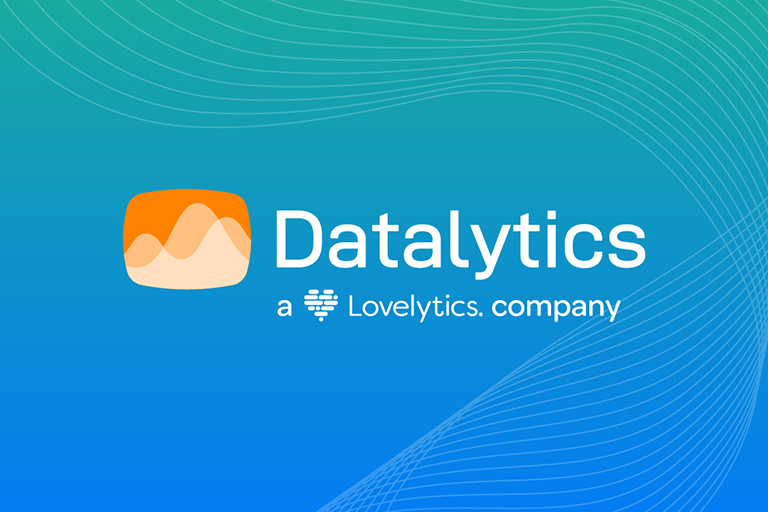Data Strategy
The data journey: from the initial encounter to the development of the strategy.
Why Data Strategy?
Many organizations want to leverage their data, but they don’t know where to start. To lay the foundation for a data-driven culture, you must begin with a Data Strategy.
It is an immersive experience in the world of data. A Data Strategy is a theoretical-practical activity in which different areas of the company reach agreements: they align knowledge in data analytics, define common criteria, and identify and prioritize business needs and challenges.

of companies with a data strategy improve their operational efficiency.
Source: AWS
more likely to meet business objectives.
Source: Gartner Consulting
higher average revenue compared to their competition.
Source: AWS
Our approach
Datalytics’ data strategy services offer the following unique advantages:
Data serving business needs
The data strategy must be 100% aligned with your business objectives. To achieve this, we work on defining the resources, roles, and responsibilities that will allow our clients to gain competitive advantages through the use of their data.
Facilitating consensus spaces
We create and moderate spaces for diverse and engaging conversations among different areas and stakeholders. These discussions are essential for establishing future agreements regarding the use of data.
Team mentoring
We help you build high-performance analytical teams. Understanding business challenges, learning how to use specific technologies, and fostering communication and analytical creativity are just some of the skills we focus on.
Data serving business needs
The data strategy must be 100% aligned with your business objectives. To achieve this, we work on defining the resources, roles, and responsibilities that will allow our clients to gain competitive advantages through the use of their data.
Facilitating consensus spaces
We create and moderate spaces for diverse and engaging conversations among different areas and stakeholders. These discussions are essential for establishing future agreements regarding the use of data.
Team mentoring
We help you build high-performance analytical teams. Understanding business challenges, learning how to use specific technologies, and fostering communication and analytical creativity are just some of the skills we focus on.
Our clients





















Client testimonials
Working with Datalytics has been an incredibly fruitful and enriching experience. The high standards of quality, service, creativity, and teamwork at Datalytics have allowed us to develop great solutions and innovations. Perhaps the most representative of these is the biosciences bot, an AI tool that enables us to access our genetic information quickly. What once could take months, we now do in seconds, and thanks to that, we can deliver diagnostic solutions much more efficiently to our patients. This tool has been nationally and internationally recognized as a major development in the field of AI in genomics.
Datalytics has allowed us to develop valuable data utilization capabilities within the organization, enabling us to leverage initiatives and support different processes with relevant and timely information. With the technical excellence of their professionals, the application of best practices, and their clear focus on results, they have given us great confidence when facing the challenges we have and the key projects that bring us closer to our higher purpose: helping businesses and institutions in the region grow.
We are very pleased with the experience we've had with the Maxi chatbot that we developed together with Datalytics. With the generative AI tools available to us (Azure OpenAI), we were able to enhance it and make it understand corporate processes to handle inquiries from different areas of the organization. This speeds up many queries that would normally take a business day; now we resolve them much faster with Maxi. This has saved us a lot of time in terms of productivity, and we're very happy because the bot is now being used in more companies within the group, which makes our technology team very proud.
At Datalytics, they are experts in data engineering. They helped us guide the development very clearly, meeting deadlines and project scope. They also provided valuable recommendations based on the situation of our company.
Frequently asked questions
A Data Strategy serves to shape the data area and helps level concepts among different people and departments. The goal is to assist companies in transforming data into a valuable asset for the business.
A Data Strategy is for organizations that:
- Have never worked with their data.
- Have tried several times but haven't quite figured it out.
- Have ongoing projects and want to scale them.
In a Data Strategy, we help our clients understand how data can help solve business problems. To do this:
- We start with a kick-off to allow teams to meet and align expectations and needs.
- We define consensus, resources, roles, responsibilities, and impacts. All of this is to consolidate a clear direction.
- We conduct leveling exercises and foster analytical creativity.
- We define, prioritize, and deepen initiatives.
- We create an execution plan.
A Data Strategy generally lasts between 4 and 5 working sessions, extending over about a month. The deliverables of a Data Strategy are:
- The definition and alignment of the company's strategic objectives in relation to future data projects.
- A list of initiatives, from which the most valuable and technically viable ones according to the technological stack can be developed.
- An action plan containing the necessary profiles for developing a data project, an estimated timeline, and a proposed architecture.




